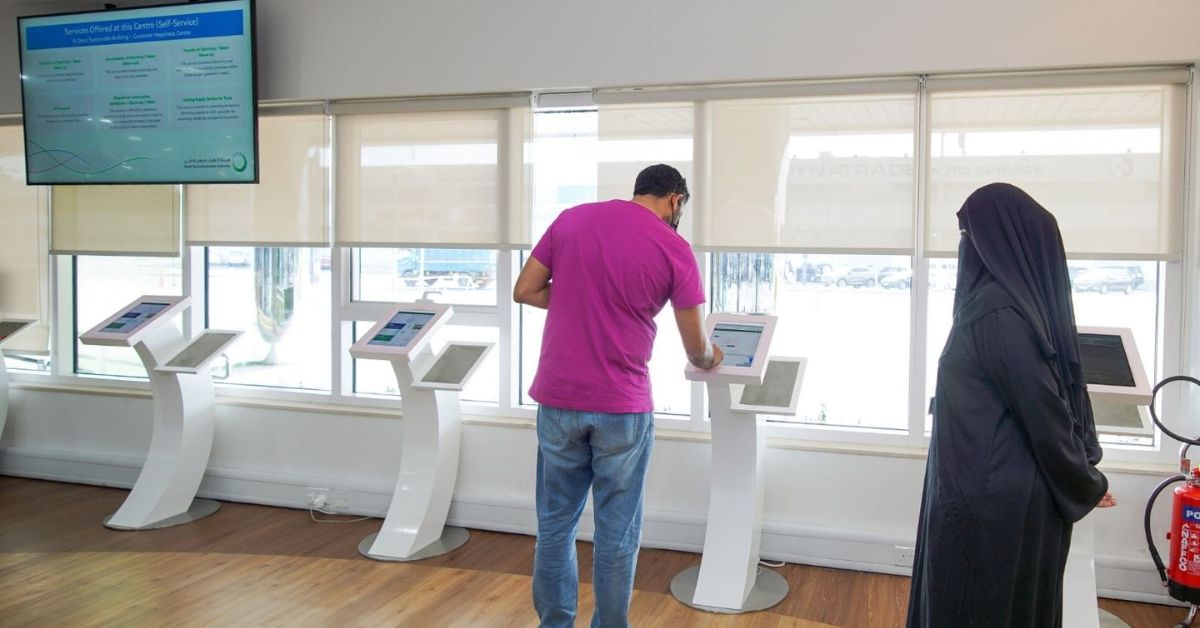DUBAI — In the dynamic landscape of the Gulf Cooperation Council (GCC) countries, the rise of Artificial Intelligence (AI) has become a transformative force in cybersecurity. The adoption of AI technology has presented immense growth opportunities and ushered in a new era of cybersecurity threats.
As governments and businesses in the GCC embrace advanced technologies, including AI, the need for robust defense mechanisms against evolving cyber threats has become paramount.
AI’s impact on cybersecurity in the GCC
AI technology has brought about a significant shift in the cybersecurity landscape of the GCC region. Reports suggest that the adoption of AI has the potential to contribute over $150 billion to the combined GDP of Gulf economies, highlighting its economic significance.
At A Glance * Technological advancements in AI lead to both opportunities and increased cybersecurity threats in the GCC. * Saudi Arabia and the UAE witness significant advancements in AI-driven cybersecurity. * Generative AI plays crucial role in anticipating and mitigating cyberattacks in the GCC. * GCC countries collaborate for a unified defense against cyber threats. * AI's capabilities enhance threat detection and prevention in cybersecurity. * Challenges are posed by cybercriminals exploiting AI for sophisticated attacks. * Reshaping of skill sets in cybersecurity to include data science, machine learning, and programming. * The need for human oversight in AI systems required to ensure ethical and safe use. * The Gulf region remains committed to balancing AI innovation with cybersecurity defense.
With the Fourth Industrial Revolution in full swing, the region is witnessing a global shift toward advanced technology, cloud computing, and AI. While these advancements open new opportunities, they also expose organizations to many cybersecurity threats. In this digitized landscape, AI is crucial in reshaping responses to increasingly sophisticated cyber threats, enabling proactive detection and mitigation of emerging risks.
GCC country efforts in AI-driven cybersecurity
Saudi Arabia
Saudi Arabia is a technological leader in the GCC, making it a prime target for cyberattacks.
The financial, pharmaceutical, technology, and energy sectors are most vulnerable, with cloud attacks being a significant concern.
Robust security measures, increased cyber awareness, and substantial investments have made KSA resilient to advanced cyber threats.
Generative AI is widely adopted to anticipate and mitigate potential cyberattacks.
The United Arab Emirates
The UAE, another technological leader, faces heightened cyber threats.
The financial, pharmaceutical, and technology sectors are vital targets due to the country’s digital economy.
The UAE emphasizes cyber awareness and substantial investments in cybersecurity measures.
The introduction of generative AI is helping enhance cyber preparedness in the region.
Other GCC Countries
Qatar, Bahrain, Oman, and Kuwait are also employing cybersecurity measures to protect their digital infrastructure.
Collaboration among GCC countries is crucial to create a united front against cyber threats.
Collective efforts involve sharing threat intelligence, conducting joint cybersecurity exercises, and implementing region-wide cybersecurity standards.
AI’s positive influence on cybersecurity
Gaurav Mohan, VP of Sales, SAARC & Middle East at NETSCOUT, emphasizes that adopting AI has significantly impacted the cybersecurity landscape in the GCC. The potential value of AI in the region is staggering, with reports suggesting a contribution of over US$150 billion to the combined GDP of Gulf economies. This paradigm shift is a testament to the region’s commitment to technological advancement and highlights the role of AI in reshaping responses to increasingly sophisticated cyber threats.
One of the key ways AI empowers cybersecurity professionals is through transformative capabilities such as natural language processing, data analytics, and machine learning. These capabilities enhance threat detection and prevention by enabling real-time anomaly detection, thus minimizing potential damages and safeguarding valuable assets. Integrating AI into existing cybersecurity systems is pivotal in proactively addressing emerging risks.
The dark side: AI in the hands of cybercriminals
While AI has bolstered cybersecurity defenses, it has also become a double-edged sword.
Mohan points out that cybercriminals are increasingly exploiting AI to launch sophisticated attacks, including distributed denial of service (DDoS) attacks and targeting financial and accounting data.

The heightened sophistication of these attacks poses a significant challenge, as AI-powered cyber threats can potentially evade traditional cybersecurity measures.
Specific sectors within the GCC, particularly in Saudi Arabia and the UAE, have been more susceptible to cyber threats due to their technological leadership. The financial, pharmaceutical, technology, and energy sectors are identified as prime targets, with cloud attacks being a significant concern. Despite the vulnerabilities, both countries have exhibited increased cyber awareness and substantial investments to bolster their resilience against advanced cyber threats.
Skill set requirements and future of cybersecurity in the GCC
The introduction of AI in cybersecurity is reshaping the skill set requirements for professionals in the field. AI-powered solutions now automate some tasks previously performed by humans. According to Mohan, professionals must expand their skill sets to include data science, machine learning, and programming.
The adoption of AI has significantly impacted the cybersecurity landscape in the GCC.
Gaurav Mohan, VP of Sales at NETSCOUT
While AI and machine learning can automatically detect and respond to threats, human oversight remains crucial in ensuring adequate security. Soft skills such as communication, collaboration, and critical thinking are becoming increasingly important.
Regulatory and ethical considerations in AI-based cybersecurity
As AI systems continue to advance, organizations in the GCC must be mindful of regulatory and ethical considerations. The responsible and ethical design of AI tools is imperative, accompanied by robust governance and oversight. Regulations should address the potential misuse of AI tools, such as AI-generated fake news, which can manipulate public opinion and disrupt economies. Human oversight is crucial for the safe use of AI systems, especially in cybersecurity, where the consequences of AI-enabled risks can be significant.

Strengthening collaboration for cybersecurity defense
In the face of an evolving cyber threat landscape driven by AI, collaboration among governments, businesses, and cybersecurity experts in the GCC is essential. The rapid shift to the cloud, the adoption of remote work, and the increasing sophistication of cyberattacks demand collaborative efforts across entire ecosystems.
Public-private coordination is crucial for fostering better relationships and making joint decisions at every level. Advanced attacks have the potential to scale dramatically, moving between public and private networks and making coordinated security efforts imperative.
As AI continues to evolve, the future of cybersecurity in the GCC will be shaped by a delicate balance between innovation and defense. The region’s commitment to embracing AI-driven solutions is evident, but it also requires a proactive approach to counter the evolving threat landscape.
By strengthening collaboration and investing in developing robust cybersecurity measures, the GCC countries can navigate the challenges posed by AI-enabled cyber threats. As AI becomes integral to cybersecurity strategies, responsible use, ethical considerations, and continuous innovation will be vital in building a secure and resilient digital future for the GCC.








